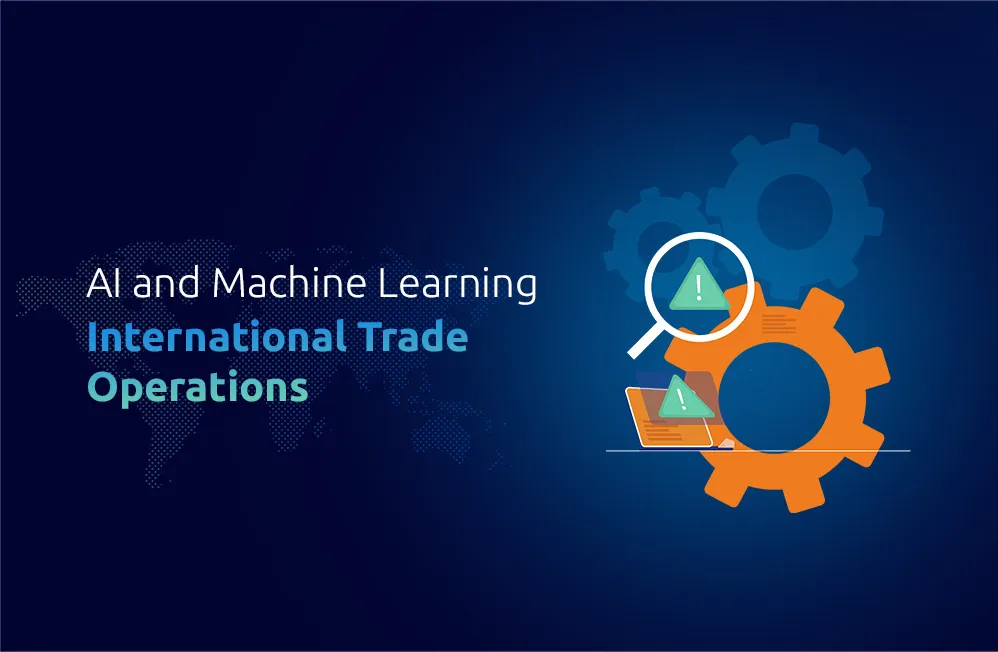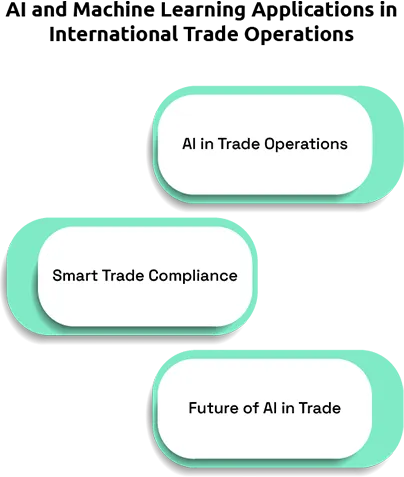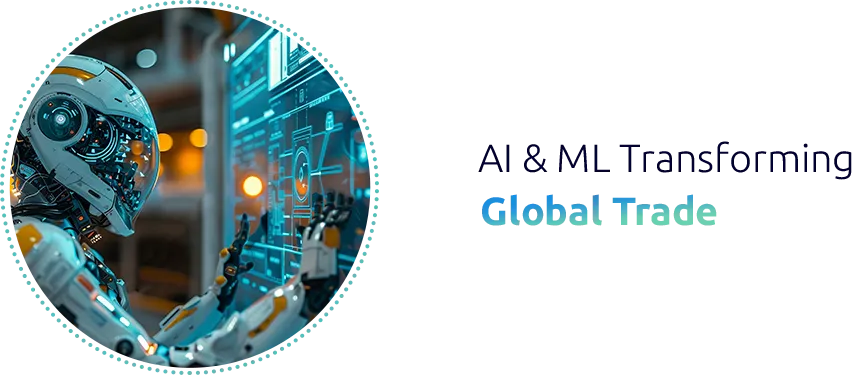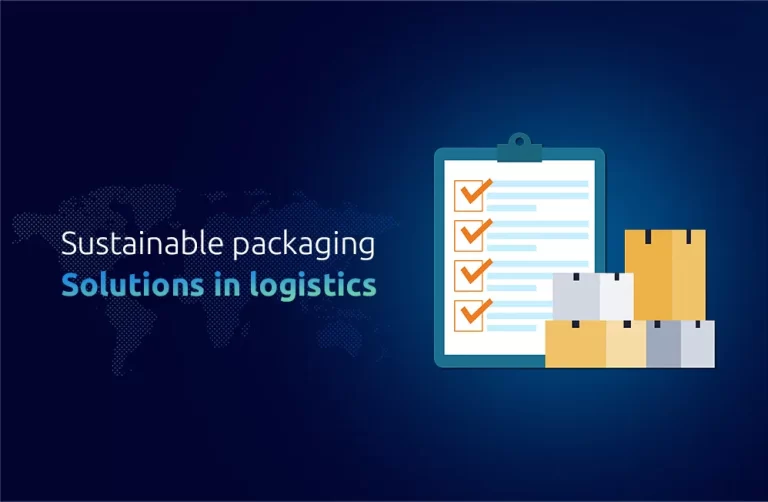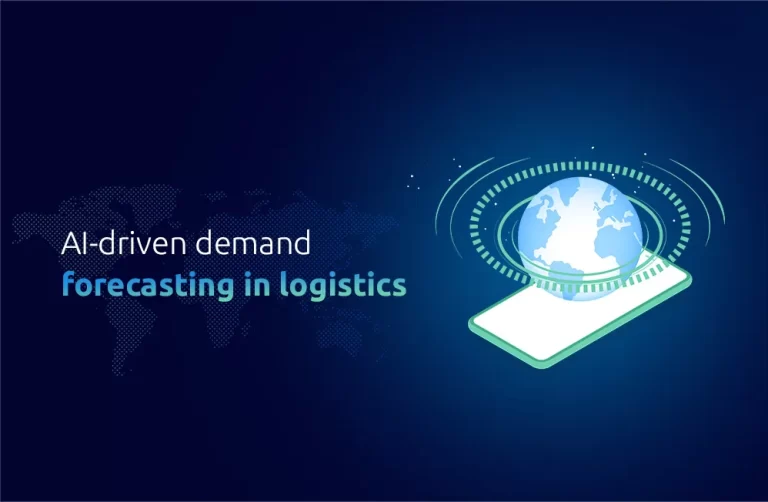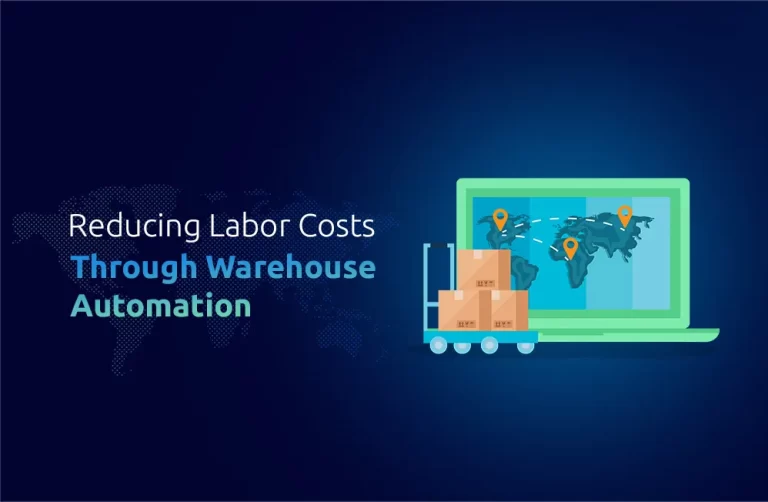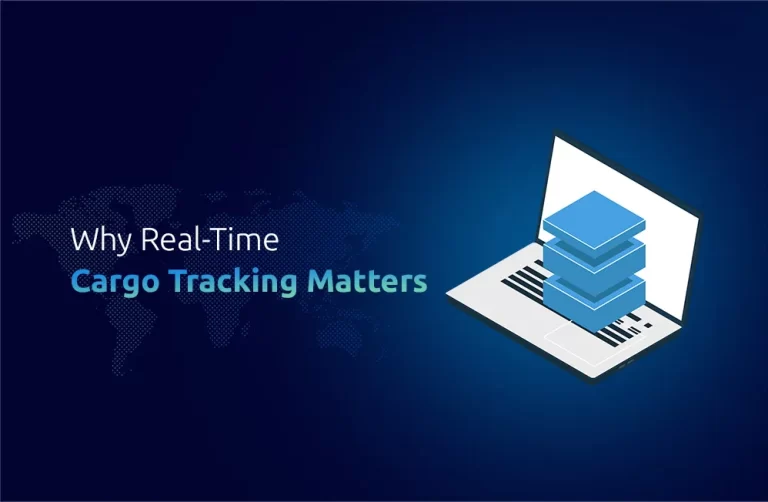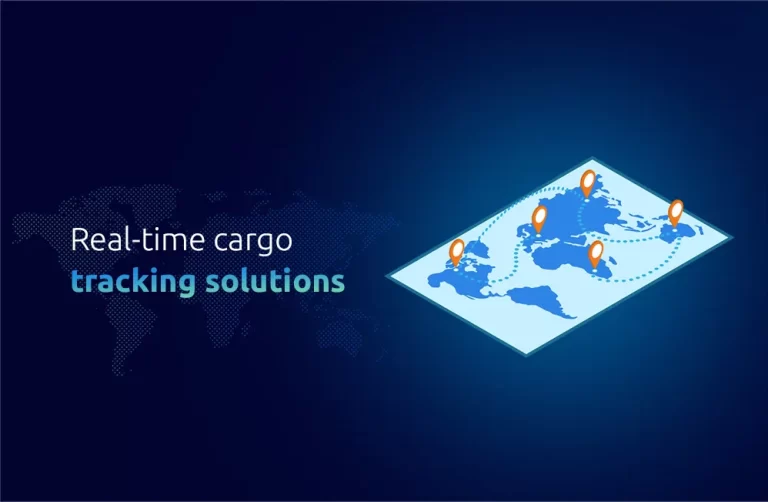Insight
A fast-moving global trading environment requires aviation equipment companies and other sectors, including automobiles and medical equipment and IT/data centres, to lead their competitors through operational efficiency. Modern businesses operating in complex global trade conditions need to respond to changing regulations, supply chain issues, and shifting consumer requirements. Artificial Intelligence (AI) alongside Machine Learning (ML) emerges at this point. International trade operations transform through advanced technological solutions, which advance operational effectiveness and regulatory conduct and improve business choices.
The industry gains new solutions through AI and ML, enabling market forecast estimation and automated compliance task execution. These technologies transform how aviation and automobile entities, IT companies, and medical equipment manufacturers manage their international trade operations.
AI and Machine Learning: A Game-Changer for Trade Operations
AI shares several links with ML because they are separate technology systems that are transforming current trade procedures. AI systems demonstrate abilities formerly only possible through human intelligence by executing various activities including decision generation, problem-solving, and comprehension. Machine learning operates as an AI subdomain through algorithms that teach systems to gain knowledge from data and boost performance autonomously after data ingestion.
The analysis of vast real-time data through these technologies assists international businesses in performing rapid and astute decision-making. The combination of AI and ML allows businesses to make supply chain disruption forecasts and identify price variation patterns through automatic document handling and regulatory inspection tasks.
Enhancing Supply Chain Efficiency with AI and ML
The most influential application of AI and ML in international trade is their ability to optimize supply chain operations effectively. These technological systems enable complete real-time product tracking, route assessment capabilities, and forecast changes arising from weather situations and geopolitical disturbances. The aviation and medical equipment sectors find this tool beneficial since it helps critical equipment reach customers on schedule and meet all safety standards.
Historical data analysis performed by machine learning models reveals regular patterns, including port delays and customs clearance issues at specific locations. By adjusting their strategic supply chain operations, businesses cut downtimes and improve resource utilization.
Companies leveraging AI predictive analytics gain better equipment breakdown forecasts, allowing them to stock necessary materials and spare parts properly. The Pattern prediction technology serves aviation and medical equipment businesses because breakdowns or delivery interruptions cause substantial financial damage.
International trade regulations require businesses to face a continuous challenge due to constant changes in laws and requirements. AI and ML technology allow businesses to automate numerous compliance procedures, improving both speed and precision.
The IT/data centers and medical equipment industries demand that businesses maintain strict framework compliance with product safety requirements, quality standards, and export/import documentation. AI systems swiftly review shipping protocols for local compliance rules to identify potential issues they raise for resolution before those problems escalate. AI systems decrease the possibility of receiving fines or penalties instead of non-compliance situations.
Machine learning system applications can track modifications in trade regulations between different countries. Continuous analysis of legal and regulatory changes through these systems produces alerts that notify businesses about operational impact points, permitting them to comply without manual tracking of all new regulations.
Optimizing Trade Forecasting and Market Insights
Combining AI and ML technologies gives businesses robust tools to predict trade movements while delivering robust market insight assessment. The analysis of extensive information through AI systems discovers market patterns that create practical knowledge for businesses about consumer needs, cost structures, and trade movement. Organizations can make better export decisions on locations and timing of sales and target their customers effectively while determining suitable product expenses.
Machine learning models in automobile equipment demand forecasting determine precise part usage across regions, helping production and inventory-level planning. Businesses can predict shipping cost fluctuations using AI technology, and this information is necessary to simplify their distribution plans and cut shipping costs. Businesses use AI-enabled market intelligence frameworks to monitor competitor actions and uncover insights about their pricing patterns, supply chain performance, and shifting market conditions. With control over real-time trending market behavior, companies can remain highly competitive by continuously modifying strategies.
AI in Customs and Border Control
One of the most complicated parts of international trading is customs clearance. Trusting the regulatory needs of different countries and the time required for customs clearance for various products and ensuring that the shipment meets all the requirements while clearing customs is time-consuming and can lead to errors. This process is already manual and time-consuming, but AI and ML can help refine this by automating document verification, tariff classification, and risk assessments.
Machine learning models analyze historical customs data to learn interdependency patterns in border clearance processes, allowing companies to avoid delays and enhance efficiency in moving goods across borders. AI, for instance, can also monitor shipments & identify potential red flags, such as pricing differences and documentation issues, that might warrant further inspection. This lowers the risk of penalties and speeds up the customs clearance process.
Additionally, AI can automate most of the formalities regarding the submission of the necessary paperwork to customs authorities, thus decreasing the administrative burden of your shipment and speeding up the process. This is especially useful for agencies in fields such as IT/data centres where speed and compliance are paramount.
The Future of AI and ML in International Trade
The future of international trade operations looks ever more promising as AI and ML technology continue to develop. So, over the years, there will be even greater development of these technologies and more automated and efficient global trade processes.
AI and ML will be integral to all trade operations, such as supply chain management, compliance forecasting, and market analysis. As AI and ML become integral to many industries, their relevance will increase as businesses leverage these technologies further to keep themselves at the cutting edge in the local and global backdrop.
One Union Solutions, however, responds to the demand for change in contemporary international trade. That is one of the reasons our AI and ML solutions help businesses in aviation, automobile equipment, IT/data centres & medical equipment industries replicate operational efficiencies, increase compliance levels and bring valuable business insight.
Did You Know,
According to the World Trade Organization, businesses that utilize AI & machine learning technologies for trade operations may experience operational cost reductions of 20%; predictive analytics using AI may cut supply chain disruptions by 30-35%.
FAQs
1. How can AI enhance international trade supply chain operations?
Ans: Artificial Intelligence can assist businesses in creating more efficient and reliable supply chains by tracking shipments in real-time, anticipating delays, optimizing routes and monitoring deliveries in real-time.
2. When it comes to trade compliance, how can machine learning help?
Ans: Machine learning enables businesses to automate compliance tasks such as document verification and regulatory monitoring to ensure all shipments comply with relevant legal regulations.
3. What role does AI play in helping businesses predict foreign market demands?
Ans: Based on historical trade data, attention and prediction can be made on future demand, based on which production and inventory levels can be better planned using Artificial Intelligence.
4. Can artificial intelligence help speed up customs clearance?
Ans: AI can automate both the document verification and risk evaluation processes, which helps speed up customs process times and increase efficiency.
5. How can AI and ML technologies benefit businesses involved in international trade in the long run?
Ans: AI and ML can help businesses achieve great efficiencies, which saves them operational costs, makes decision-making processes efficient, and ensures compliance, thus significantly increasing their competitiveness in global markets.

